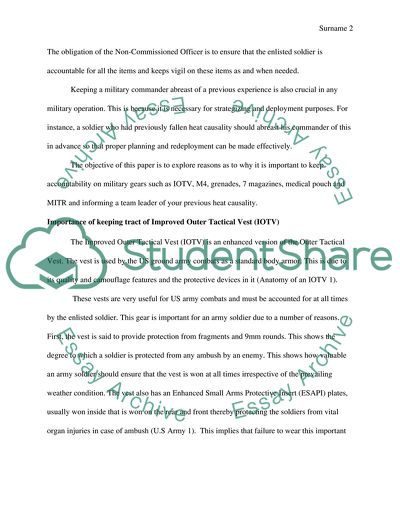Cite this document
(“Importance of Keeping Accountability and the Protocol Duties in Army Research Paper”, n.d.)
Importance of Keeping Accountability and the Protocol Duties in Army Research Paper. Retrieved from https://studentshare.org/military/1778260-why-it-is-important-to-keep-accountability-on-gear-and-telling-a-team-leader-that-im-a-previous-heat-causality
Importance of Keeping Accountability and the Protocol Duties in Army Research Paper. Retrieved from https://studentshare.org/military/1778260-why-it-is-important-to-keep-accountability-on-gear-and-telling-a-team-leader-that-im-a-previous-heat-causality
(Importance of Keeping Accountability and the Protocol Duties in Army Research Paper)
Importance of Keeping Accountability and the Protocol Duties in Army Research Paper. https://studentshare.org/military/1778260-why-it-is-important-to-keep-accountability-on-gear-and-telling-a-team-leader-that-im-a-previous-heat-causality.
Importance of Keeping Accountability and the Protocol Duties in Army Research Paper. https://studentshare.org/military/1778260-why-it-is-important-to-keep-accountability-on-gear-and-telling-a-team-leader-that-im-a-previous-heat-causality.
“Importance of Keeping Accountability and the Protocol Duties in Army Research Paper”, n.d. https://studentshare.org/military/1778260-why-it-is-important-to-keep-accountability-on-gear-and-telling-a-team-leader-that-im-a-previous-heat-causality.


